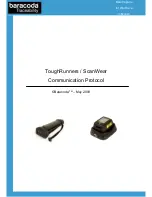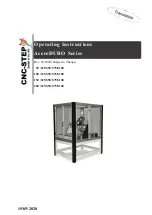
24-port NWay Ethernet Switch User’s Guide
116
Switch Management and Operating Concepts
DVMRP uses RIP-like exchange messages to build its unicast
routing table, and MOSPF relies on an OSPF link-state database.
PIM-DM also forwards multicast messages on all downstream
interfaces until it receives prune messages, while DVMRP
forwards multicast traffic to child nodes in the delivery tree. So
PIM-DM duplicates messages, but eliminates routing protocol
dependencies and avoids the overhead caused by the calculation
of child interfaces at each router. PIM-DM uses graft messages
for attaching a previously pruned branch to the delivery tree,
similar to DVMRP.
Routing
Static and Dynamic Interior Routes
The RIP protocol is a straightforward implementation of
distance-vector routing. It partitions participants into active and
passive. Active participants advertise their routes to others;
passive participants listen to RIP messages and use them to
update their routing table, but do not advertise. Only a router
can run RIP in active mode; a host must use passive mode.
A router running RIP in active mode broadcasts a routing update
message every 30 seconds. The update contains a set of pairs,
where each pair contains an IP network address and an integer
distance to that network. RIP uses a hop count metric to
measure distances. The update contains information taken from
the router’s current routing database. Each update contains a
set of pairs, where each pair contains an IP network address and
integer distance to that network. RIP uses a hop count metric to
measure distances. In the RIP metric, a router is defined to be
















































